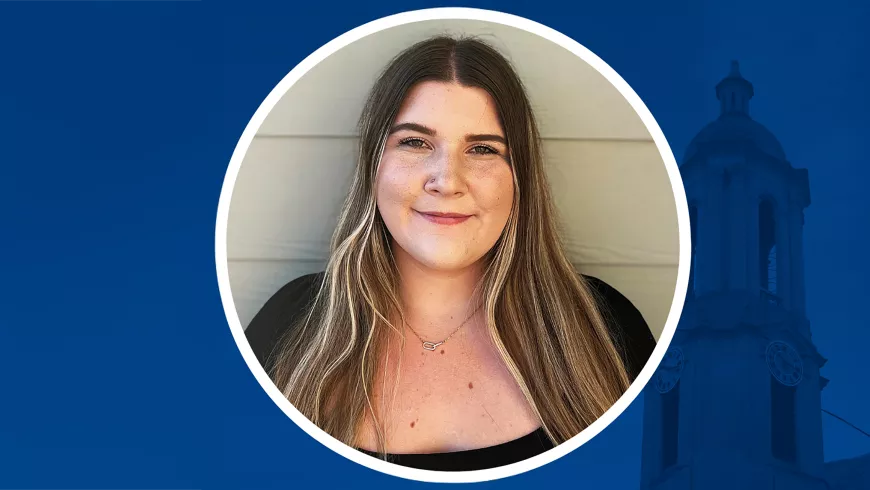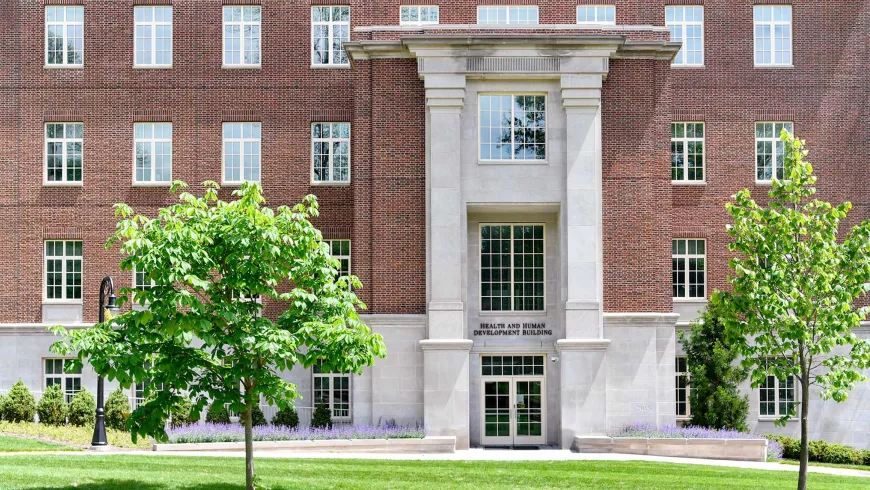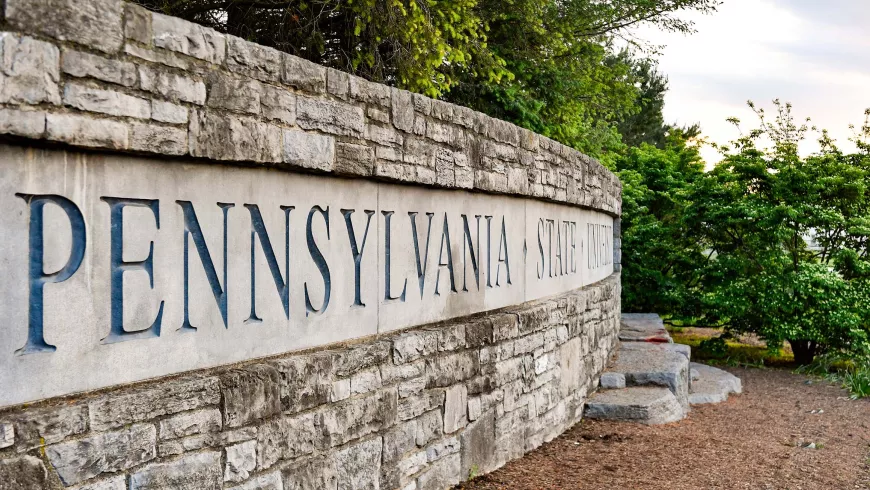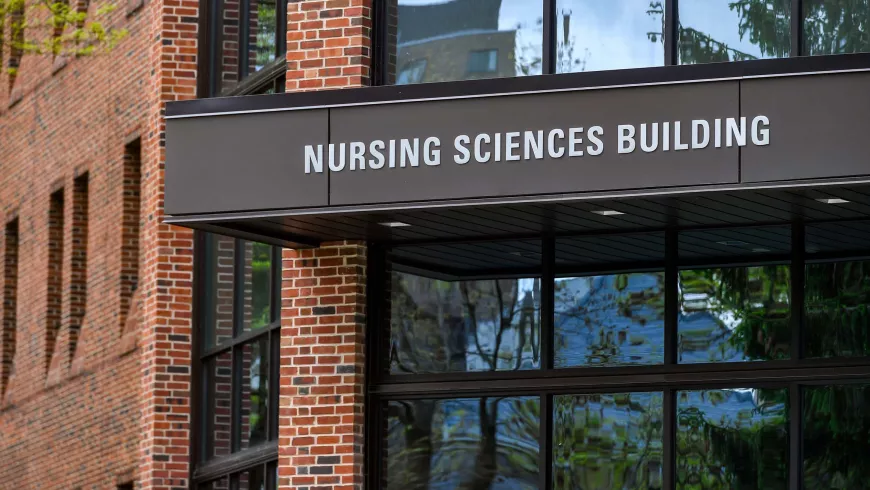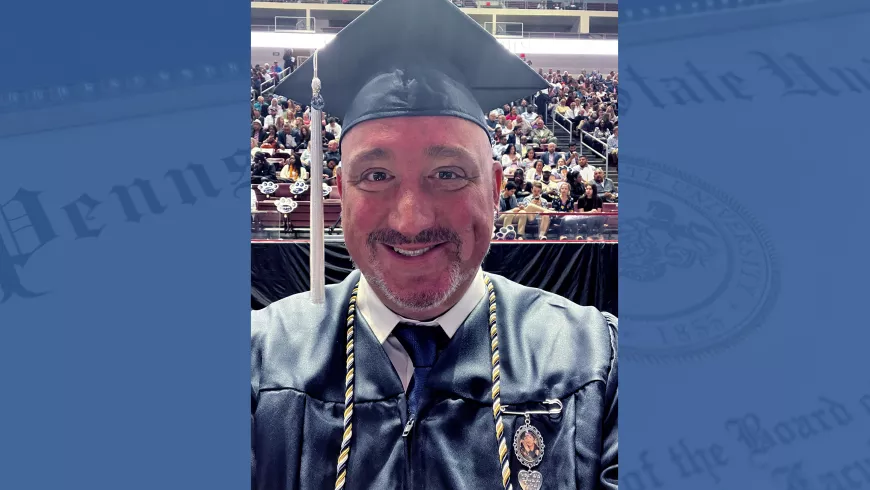Hands-On Experience
Complete an internship alongside your online course work.
Application deadline
Credits and costs
Nationally Recognized
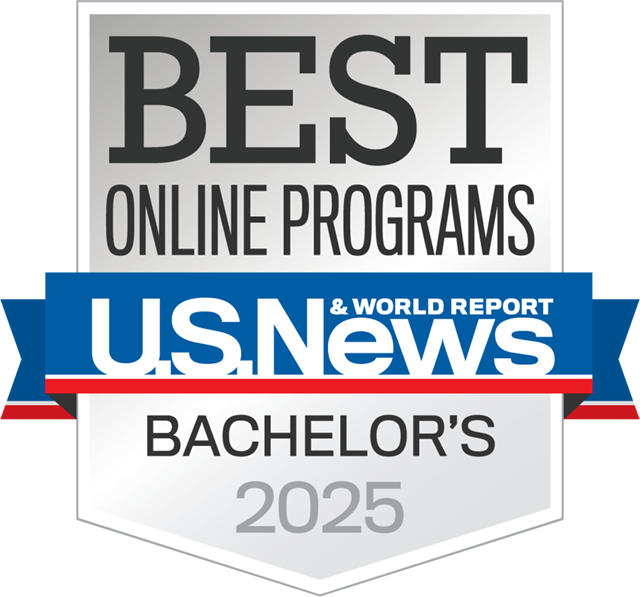
Gain Skills to Achieve Your Career Goals and Understand the Human Life Span
Advocate for new social policies and programs, dealing with every part of the life span from youth development, middle age, through elderly care
Develop, implement, and evaluate interventions designed to improve people's lives through family life education
Understand biological, psychological, and social development across the lifespan and the structure and function of families
Learn to promote healthy development, identify and manage real-life problems, and intervene when appropriate
Master a Comprehensive Curriculum With Online Courses
Master a Comprehensive Curriculum With Online Courses
Study a range of human services and diverse populations to gain an understanding of human development across the life span. You can learn how people change in response to their surroundings — within families, schools, communities, and the workplace. And you will explore how evidence-based interventions improve lives.
The Bachelor of Science in Human Development and Family Studies, Life Span Human Services option, is a 120-credit program. A grade of C or better is required in any HDFS course taken to satisfy the degree requirements. Consultation with your World Campus academic adviser to help you navigate your completion of this degree is strongly recommended.
You will study how family relationships, peers, social institutions (e.g., schools, work environments), income, religion, cultural background, and government policies all affect an individual's development and how interventions in these settings can facilitate growth and reduce problems in development. You will also investigate moral, ethical, and legal issues you will face as a professional, and learn to evaluate alternative approaches to promoting optimal development.
Prescribed Courses for the Major (18 credits)
- 3credits
Introduction to psychosocial and family development at all stages of the individual and family life cycle.
- 3credits
Examines bases for choices among values in personal and professional relations in human development processes and supporting services.
- 3credits
Survey of individual and family formal and informal intervention efforts; historical and current perspectives and approaches.
- Prerequisite
HDFS 129
- 3credits
Introduction to the skills involved in critical thinking in general and the methods of empirical inquiry in particular.
- Prerequisite
a grade of C or better required in EDPSY 101 or STAT 200
- 3credits
Family functions over the life course; family from a multidisciplinary perspective, emphasizing adaptation and change.
- Prerequisite
HDFS 129 or 3 credits in social, behavioral, or human biological sciences
- 3credits
Dynamics of family interaction; effects of parenthood, sibling and intergeneration relationships on family solidarity.
- Prerequisite
HDFS 312W and (HDFS 315Y or HDFS 315W)
Additional Courses for the Major (13 credits)
Human Development Courses (select 6 credits)
- 3credits
Theory, research, and methods of social/behavioral/biological sciences related to developmental processes and intervention during infancy and childhood.
- 3credits
Social, behavioral, and biological development and intervention throughout adolescence.
- 3credits
Physiological, psychological, and social development and intervention from young adulthood through old age.
United States Cultures and STAT 200 (7 credits)
Select 3 credits of United States Cultures.
- 4credits
Descriptive Statistics, frequency distributions, probability and normal distributions, statistical inference, linear regression, and correlation.
- Prerequisite
2 units of algebra
Prescribed Courses for the Life Span Human Services Option (9 credits)
- 3credits
Theory and research related to interpersonal conditions which facilitate personal growth; intensive interpersonal competency training.
- Prerequisite
(HDFS 311 and HDFS 312W) or 6 credits in human development and family studies or psychology
- 3credits
Strategies for, and roles of professional specialists in, the solution of problems in human development and family functioning.
- Prerequisite
HDFS 312W and 6 credits in human development and family studies or psychology
- 3credits
Fundamentals of program development and administration of human service programs in community settings; emphasis given to program content, strategies, and the overall planning process.
- Prerequisite
HDFS 311
Additional Courses for the Life Span Human Services Option (35 credits)
Human Development Courses (9 credits)
Select 6 credits from 300- or 400-level HDFS courses and select 3 credits from the following list of courses:
- 3credits
Conceptual analysis, assessment, and empirical investigation of normal and deviant development, prenatal through first two years of life.
- Prerequisite
(HDFS 229 or PSYCH 212) and HDFS 312W
- or:3credits
Processes of development during childhood from birth to adolescence. Emphasis on theory, method, and empirical research.
- Prerequisite
(HDFS 229 or PSYCH 212) and HDFS 312W
- or:3credits
Conceptual analysis and empirical investigation of interrelationships between developmental processes during the period of pubertal growth.
- Prerequisite
HDFS 239 and HDFS 312W
- or:3credits
Processes of development and change of behavior from early adulthood through old age, emphasizing theory, method, and empirical research.
- Prerequisite
HDFS 249 and (HDFS 312W or PSYCH 301W) and (PSYCH 200 or STAT 200 or 3 credits of statistics) and (6 credits in HDFS or PSYCH or SOC)
Field Practice in Human Service Setting (14 credits)
- 2credits
Planning and preparation for field experience in human service setting. Analysis of human service system and arrangement of site.
- Prerequisite
HDFS 312W; approval by internship coordinator.
- Prerequisite or concurrent
HDFS 411
- 9credits
Full-time, one semester experiential training in human service settings.
- Prerequisite
HDFS 490 and HDFS 301 and HDFS 455 and permission of internship director
- 3credits
Implementation of internship projects or scholarly paper.
- Prerequisite or concurrent
HDFS 495A
Supporting Courses and Related Areas (12 credits)
Select 12 credits (minimum of 6 credits at the 400 level) in consultation with your adviser from University-wide offerings that develop competency in the option (a grade of C or better is required in any HDFS course taken to satisfy this requirement).
General Education Requirements
Some General Education requirements may be satisfied by courses required for the major. Students should work with an adviser to select courses.
- Foundations: 15 credits
All courses require a grade of C or better. Inter-Domain courses may not be used for foundations requirements.- Writing/Speaking: 9 credits
- Quantification: 6 credits
3-6 credits are selected from mathematics, applied mathematics, and statistics; 3 credits may be selected from computer science or symbolic logic.
- Knowledge Domains: 15 credits
Inter-Domain courses may not be used for knowledge domain requirements.- Health and Wellness (GHW): 3 credits
- Natural Sciences (GN): 3 credits
- Arts (GA): 3 credits
- Humanities (GH): 3 credits
- Social and Behavioral Sciences (GS): 3 credits
- Integrative Studies: 6 credits
- Inter-Domain course work: 6 credits
- Exploration: 9 credits
- Natural Sciences (GN) (may be Inter-Domain): 3 credits
- GA, GH, GN, GS, and Inter-Domain courses: 6 credits
May include 3 credits of World Language course work beyond the requirements of the student’s degree program or at the 12th credit level, whichever is higher.
These General Education Requirements are for students who started in summer 2023 or later. Students who started earlier can review the prior version of the general education requirements.
Course Availability
If you're ready to see when your courses will be offered, visit our public LionPATH course search (opens in new window) to start planning ahead.
Start or Advance Your Career

Start or Advance Your Career
This program's well-rounded curriculum can give you the basis you need to become a leader in human services. You can use the knowledge you gain and the support of Penn State career resources to pursue careers in a variety of fields, depending on your goals.
Job Titles Related to This Degree
The following roles are often held by people with this type of degree:
- Child Development Teacher
- Child Welfare Worker
- Elder Care Assistant
- Family Resource Coordinator
- Social Services Assistant
- Youth Services Specialist
Employment Outlook for Occupational Fields Related to This Degree
Estimates of employment growth and total employment are provided by the U.S. Bureau of Labor Statistics and are subject to change. While these occupations are often pursued by graduates with this degree, individual outcomes may vary depending on a variety of factors. Penn State World Campus cannot guarantee employment in a given occupation.
Social and Human Service Assistants
Child, Family, and School Social Workers
Preschool Teachers, Except Special Education
Qualified to Work with Children, Youth, Families, and Adults
The careers for HDFS majors webpage also covers some of the exciting opportunities available to our students. As a graduate of the bachelor's degree in HDFS program, you can be qualified to work with children, youth, and families, as well as adults to:
- oversee treatment and interventions
- plan, organize, implement, manage, and coordinate programs
- supervise the operations of various centers
- provide leadership for projects
- work directly with children, older adults, and families
In addition, this degree is an excellent way to prepare for graduate school or advanced clinical training in the social, behavioral, and health sciences.
Career Services to Set You Up for Success

From the day you're accepted as a student, you can access resources and tools provided by Penn State World Campus Career Services to further your career. These resources are beneficial whether you're searching for a job or advancing in an established career.
- Opportunities to connect with employers
- Career counselor/coach support
- Occupation and salary information
- Internships
- Graduate school resources
Upcoming Events
Ready to Learn More?
Get the resources you need to make informed decisions about your education. Request information on this program and other programs of interest by completing this form.
Ready to take the next step toward your Penn State bachelor's degree?
Costs and Financial Aid
Costs and Financial Aid
Learn about this program's tuition, fees, scholarship opportunities, grants, payment options, and military benefits.
Costs and Financial Aid
Undergraduate Tuition
Undergraduate tuition is calculated based on the number of credits for which you register and the number of total credits you have accrued at or transferred to Penn State.
Tuition is due shortly after each semester begins and rates are assessed every semester of enrollment.
2024–25 Academic Year Rates
| How many credits do you plan to take per semester? | If you have 59 or fewer credits | If you have 60 or more credits |
|---|---|---|
| 11 or fewer | $632 per credit | $678 per credit |
| 12–19 | $7,678 per semester | $8,288 per semester |
2025–26 Academic Year Rates
| How many credits do you plan to take per semester? | If you have 59 or fewer credits | If you have 60 or more credits |
|---|---|---|
| 11 or fewer | $638 per credit | $685 per credit |
| 12–19 | $7,755 per semester | $8,371 per semester |
Undergraduate students taking more than 19 credits will be charged the flat tuition rate plus the regular per credit hour rate for each credit above 19.
Financial Aid and Military Benefits
Some students may qualify for financial aid. Take the time to research financial aid, scholarships, and payment options as you prepare to apply. Federal financial aid may only be used to pay for credits used to satisfy program requirements.
Military service members, veterans, and their spouses or dependents should explore these potential military education benefits and financial aid opportunities, as well.
Additional Cost of Attendance Details
To view the detailed list of cost of attendance elements:
- visit the Tuition Information site
- click the plus sign to expand the table
- select a semester from the World Campus row
Make a Difference
Make a Difference
Pursue a degree that allows you to help make lives better by learning to advocate for new social policies and programs as well as develop new models of community outreach to prevent and treat social, emotional, and behavioral problems.
- You have always been curious about human behavior and family relationships, and how people relate to one another
- You are passionate about pursuing a career in which youcan develop, implement, or evaluate interventions designed to improve the lives of individuals and families
- You want to prepare for graduate school in human development, family studies, psychology, or sociology, or advanced professional training in psychology, law, behavioral health, counseling, or social work
Gain Valuable Hands-On Experience
Gain Valuable Hands-On Experience
Learning how to help real people and improve well-being requires experience working in the field. This program will provide you with those opportunities.
Human Development and Family Studies (HDFS) students complete an internship at a human service organization in their community during their final year of study. Internship experiences are essential in most human service fields and can help you:
- gain practical, hands-on work experience
- observe professionals
- connect what you learn in your courses to real-world settings
- transition more easily from school to your field of interest
- build a professional network
- earn the work references you will need to get a high-quality job
Internships can also be valuable to people who already work in the field, by providing opportunities to train in new departments or move up to higher-level responsibilities.
What is the HDFS Internship?
The internship consists of preparatory course work, fieldwork, and reflective assignments and academic projects to help you learn from your experiences and connect your hands-on work with your academic knowledge. You will work closely with your adviser to plan the path most appropriate for you.
Where to Find Internship Opportunities
Our current students intern at a range of organizations representing the diversity of fields that HDFS graduates enter. Common internship sites include:
- day care centers
- schools
- mental health organizations
- nonprofit groups
- human resources departments
HDFS and advising staff are happy to discuss your interests and help you think about appropriate internship sites. Additionally, all students take a "pre-internship" course in which an instructor guides you through the process of negotiating an internship.
Internship Requirements
During the semester prior to enrolling in an internship, all students must complete a pre-internship course designed to guide them through the process of preparing a résumé, identifying potential internship sites, negotiating internship tasks and expectations, and designing an internship that is approved by the department. Then, during the internship semester, students are required to be on-site at a human service organization each week for a designated number of hours. During this time, students are also enrolled in course work designed to promote reflective learning.
The table below provides an overview of the internship requirements for the associate degree, the bachelor's degree, and the associate-to-bachelor's degree path.
| Degree | On-Site Hours Required | Courses Required |
|---|---|---|
| Associate Degree | 160 hours (11–12 hours per week during the spring or fall, or 13–15 hours per week during the summer) |
|
| Bachelor's Degree | 480 hours (32 hours per week during the spring or fall, or 40 hours per week during the summer) |
|
| Associate Degree to Bachelor's Degree | 480 hours total, split into: 160 hours for the associate internship and 320 hours for the bachelor's internship |
and
|
How Can an Internship Work for Me?
While many students can fit internships into their lives, for some, doing so poses considerable challenges. If you have significant caregiving responsibilities, long work hours, or unpredictable work schedules, you may find it challenging to complete the internship requirements. You should carefully consider the internship requirements prior to enrolling in an HDFS degree program. As you think about your situation, here are some options to consider.
- Students already working in a human service organization are sometimes able to intern at their workplaces provided that they are completing new or higher-level duties. For instance, a student working as a classroom assistant at a preschool could complete his internship at his school by training for and then moving into a lead teacher position. It is very important that students interested in this option discuss it with the HDFS internship coordinator and with their work supervisors before moving forward. Interested students may contact Ms. Terry Cummins, Director of Internships for HDFS World Campus, at [email protected] to discuss their options.
- Bachelor's degree students who are concerned they will be unable to complete the full-semester internship may — with advance planning — meet the requirement by first completing 160 internship hours required for the associate degree early in the bachelor's program (11–13 hours per week). Then, those hours and credits may be applied toward the bachelor's degree internship requirement, leaving 320 internship hours to complete during a student's final semester (22–25 hours per week). This is outlined in the table under the title "Associate Degree to Bachelor's Degree." Note: This can be a step-up sequence to pursue degrees or to complete internship requirements.
If you need more information to evaluate your readiness for completing the internship requirements for an HDFS degree, contact World Campus advising at 814-865-5403 or email Ms. Terry Cummins at [email protected] prior to enrolling in an HDFS program.
Earn a Valuable Credential along the Way

Earn a Valuable Credential along the Way
Show mastery of specific subjects before your degree is complete. Thanks to shared courses across programs, students can often earn an additional credential along with their degree in less time than if they earned them separately.
The credits earned in the associate degree may be applied toward the Bachelor of Science in HDFS at Penn State if you are accepted into the program. Use these credentials to set yourself apart on the career ladder as you pursue your education goals.
Prepare for a rewarding career that makes a difference in people's lives. This online associate degree program explores family development and life span and can provide you with the entry-level professional skills you need for a variety of careers in human service professions.
Learn more about the Associate in Science in Human Development and Family StudiesSet Your Own Pace

Set Your Own Pace
Whether you are looking to finish your program as quickly as possible or balance your studies with your busy life, Penn State World Campus can help you achieve your education goals. Many students take one or two courses per semester.
Our online courses typically follow a 12- to 15-week semester cycle, and there are three semesters per year (spring, summer, and fall). If you plan to take a heavy course load, you should expect your course work to be your primary focus and discuss your schedule with your academic adviser.
To Finish Your Degree in Two to Three Years
- Take 6 courses each semester
To Finish Your Degree in Three to Four Years
- Take 4–5 courses each semester
To Finish Your Degree in Five or More Years
- Take 2–3 courses each semester
Timelines may vary for students transferring credits from another school or based on course availability.
Convenient Online Format
This program's convenient online format gives you the flexibility you need to study around your busy schedule. You can skip the lengthy commute without sacrificing the quality of your education and prepare yourself for more rewarding career opportunities without leaving your home.
A Trusted Leader in Online Education

Penn State has a history of more than 100 years of distance education, and World Campus has been a leader in online learning for more than two decades. Our online learning environment offers the same quality education that our students experience on campus.
How to Apply to Penn State

How to Apply to Penn State
Apply by June 30 to start August 25
Application Instructions
Deadlines and Important Dates
Complete your application and submit all required materials by the appropriate deadline. Your deadline will depend on the semester you plan to start your courses.
Fall Deadline
Apply by June 30 to start August 25Spring Deadline
Apply by October 31 to start January 12Summer Deadline
Apply by March 15, 2026, to start May 18, 2026
New students are encouraged to complete the FAFSA by March 1. Please visit the Office of Student Aid website for more information about applying for financial aid and recommended deadlines.
Steps to Apply
To apply for this program, you must be a high school graduate, or have completed your GED.
You will need the following items to complete your application:
High school transcripts or GED transcript — First-year applicants are required to submit Self-Reported Academic Records (SRAR) when applying. Official high school transcripts for first-year applicants will only be required at the time a student accepts an offer of admission to Penn State.
Transfer international students will need to submit their high school transcript before their application can be reviewed.
Official college or university transcripts and/or official military transcripts (if applicable) — All college or university transcripts are required regardless of the length of time that has passed, the grades earned, or the accreditation of the institutions attended. Acceptance of transfer credit toward your degree is subject to final approval by the academic department. For detailed information, see the Transfer Students page.
Transcripts not in English must be accompanied by a certified translation.
English Proficiency — The language of instruction at Penn State is English. With some exceptions, international applicants must take and submit scores for the Test of English as a Foreign Language (TOEFL) or International English Language Testing System (IELTS). Minimum test scores and exceptions are found in the English Language Proficiency section on the Undergraduate Admissions International Requirements page. Visit the TOEFL website for testing information. Penn State's institutional code is 2660.
To begin the online application, you will need a Penn State account.
Create a New Penn State Account
If you have any problems during this process, contact an admissions counselor at [email protected].
Please note: Former Penn State students may not need to complete the admissions application or create a new Penn State account. Please visit our Returning Students page for instructions.
Accessing MyPennState
The MyPennState Portal provides access to our online admissions services. Before accessing MyPennState, you must have a Penn State account that will be used to access all Penn State systems. After creating an account, you will receive a unique Penn State User ID. You will need to enter your User ID followed by @psu.edu when signing in to MyPennState and other Penn State sites. For example, you should be entering something like '[email protected]' in the Sign In field.
The application consists of six sections:
- Application Setup
- Program of Study
- Citizenship and Residency
- Academics and Experience
- Miscellaneous
- Review and Submit
Application Setup
Be sure to select "Online" for the "How would you like to complete your degree" question if you plan to attend Penn State World Campus.
The rest of this section will ask some basic questions about your education experience and military affiliation.
Program of Study
You will choose the degree type and then the starting semester.
Your starting campus will be selected as Penn State World Campus by default as long as you picked "Online" in your Application Setup. Click Continue.
On the Choose a Program page, select your intended major from the list.
Review your selection on the summary screen and click Continue to move on to the Citizenship and Residency section.
Citizenship and Residency
Complete the series of questions about your citizenship status, demographic information, Pennsylvania residency status, and family history.
Academics and Experience
You will need to enter academic experience information about your high school and any attempted courses at a college or university after high school.
The Education Gap Statement offers a place to explain any time that has elapsed between your high school graduation and your anticipated enrollment at Penn State. Please provide a summary of why that gap occurred. Some examples that would explain a gap in your education include work, family, attending another college or university, etc.
Miscellaneous
In the Miscellaneous section, you will provide any program-specific requirements (e.g., a personal statement), information about activities, and financial aid information.
Review and Submit
Review your information, digitally sign your application, and provide payment for the application fee ($65 domestic or $75 international).
High School Transcripts and Academic Record
After your application is completed, you will also need to self-report your high school course work before the application deadline. You will be directed to fill out the Self-Reported Academic Record (SRAR). It is helpful to have a high school transcript available when completing this section. In the third section, you'll select your program of study and campus.
Official high school transcripts or GED transcript, along with records from high school, are required, regardless of the length of time that has passed.
Include any college/university transcripts (required), military transcripts, and Proof of English Language proficiency (if applicable). SAT/ACT scores are not required if you are identified as an adult learner or transfer student.
All official documents should be sent to:
Undergraduate Admissions Office
The Pennsylvania State University
201 Shields Building
University Park, PA 16802You can also have your transcripts sent electronically through Parchment, eScript-Safe, or the National Clearinghouse directly to Penn State from the college/university where course work was attempted.
Acceptance
After receiving your application, application fee, and all required materials, your application will be evaluated for admission. You can check your application status online. This will provide the most up‐to‐date information about the status of your application and is updated once daily, before 8:00 a.m. (ET). Once a decision has been made regarding your application, it will be available to you through the MyPennState portal.
For information on when you can expect an admissions decision, visit the Dates and Deadlines page of the Undergraduate Admissions website. Make sure you click the "+" sign to see these dates for World Campus Applicants (First-Year and Transfer).
5. Complete the application.
Admissions Help
If you have questions about the admissions process, contact an admissions counselor at [email protected].
Contact Us

Contact Us
Have questions or want more information? We're happy to talk.
To learn more about the Bachelor of Science in Human Development and Family Studies, please contact:
World Campus Admissions Counselors
Phone: 814-863-5386
Email: [email protected]
Learn from the Best
Learn from the Best
This program was developed in Penn State's Department of Human Development and Family Studies in the College of Health and Human Development at University Park.
Faculty
Shannon A. Corkery
- DegreePh.D., Family Studies and Human Development, University of Arizona
- DegreeM.S., Family Studies and Human Development, University of Arizona
- DegreeB.S., Human Development and Family Studies, Penn State
- DegreeB.S., Psychology, Penn State
Dr. Shannon A. Corkery is the director of the human development and family studies program for Penn State World Campus. In this role, she manages staffing, curriculum, student communications, and more. She instructs and has authored and co-authored numerous HDFS World Campus courses, including HDFS 301, 312w, 411, 433, and 455. Dr. Corkery coordinates with the resident HDFS program at Penn State University Park to uphold programmatic standards and plan strategic initiatives.
Megan Baril
- DegreePh.D., Human Development and Family Studies, Penn State
- DegreeM.S., Human Development and Family Studies, Penn State
- DegreeB.A., Psychology, Wake Forest University
Dr. Megan Baril is co-author and instructor of HDFS 129: Introduction to Human Development and Family Studies. Since receiving her doctorate, she has taught both online and in the classroom. Her research interests include exploring dynamics and processes within the context of families with adolescent offspring, the development of parental knowledge over middle childhood and adolescence, and associations between religiosity family processes, parenting, and parent-child relationship quality.
Joanna Bissell-Havran
- DegreePh.D., Human Development and Family Studies, Penn State
- DegreeGraduate Minor, Statistics, Penn State
- DegreeM.S., Human Development and Family Studies, Penn State
- DegreeB.A., Psychology, Spanish, Lebanon Valley College
Dr. Joanna Bissell-Havran is an assistant teaching professor of human development and family studies. She primarily teaches courses on research methods and child and adolescent development. Previously, she taught graduate-level courses on statistics and lifespan development and mentored dissertation students for Walden University. She also conducted research on adolescents' achievement motivation and sexual development.
Elizabeth Cipriano Essel
- DegreePh.D., Human Development and Family Studies, Penn State
- DegreeM.S., Human Development and Family Studies, Penn State
- DegreeB.A., Psychology, University of Michigan
Dr. Elizabeth Cipriano Essel is author and instructor of HDFS 428: Infant Development and co-author and instructor of HDFS 229: Infant and Child Development. Prior to becoming a Penn State World Campus instructor for HDFS, she completed a two-year postdoctoral fellowship at Penn State, where she conducted research on the effects of maltreatment, parenting, and individual differences (i.e., temperament, physiology) on preschool children's self-regulation development.
Jennifer Crissman Ishler
- DegreeD.Ed., Higher Education Administration, Penn State
- DegreeM.S., Counseling and Student Affairs, Shippensburg University
- DegreeB.S., Elementary Education, Millersville University
Dr. Jennifer Crissman Ishler, associate professor of teaching in HDFS, instructs first-year seminars and HDFS 311, 411, and 414 at Penn State University Park, where she also advises the College of Health and Human Development's Women's Leadership Initiative Program. Dr. Crissman Ishler also instructs HDFS 311 and HDFS 414 for Penn State World Campus. Additionally, she is the creator, author, and instructor of upper-level HDFS offerings available through Penn State and Penn State World Campus on adoption — practice, policy, and experience.
Teresa (Terry) Cummins
- DegreeMaster of Hotel, Restaurant, and Institutional Management, Penn State
- DegreeB.S., Recreation and Park Management, Concentration in Commercial Recreation and Tourism, Penn State
Teresa (Terry) Cummins is director of HDFS Penn State World Campus internships and an instructor for the associate and bachelor's degrees' internship sequence: HDFS 395.1 and 395.2 and HDFS 490, 495A, and 495B. She works with students to identify internship experiences that help support their career goals and to apply their academic knowledge to hands-on learning experiences. Before joining HDFS, she was the director for diversity at the Smeal College of Business, where she mentored underrepresented students in their development of professionalism skills to obtain internships and full-time employment.
Meghan Sinton Miller
- DegreePh.D., Human Development and Family Studies, Penn State
- DegreeB.A., Psychology, Biological Psychology Concentration, College of the Holy Cross
Dr. Meghan Sinton Miller is the author and instructor of HD FS 429: Advanced Child Development. She has experience teaching a range of courses on child and adolescent development, and research interests that examine individual, family, peer, and cultural influences on child and adolescent body image and eating behavior.
Joel A. Muraco
- DegreePh.D., Family Studies and Human Development, University of Arizona
- DegreeM.S., Family Studies and Human Development, University of Arizona
- DegreeB.S., Family Studies and Human Development, University of Arizona
- DegreeB.A., English and Creative Writing, University of Arizona
Dr. Joel A. Muraco teaches the Penn State World Campus course HDFS 250: Sexual Identity over the Lifespan. He also teaches online courses in family development, adolescent development, family policy, and human sexuality for the Human Development Department at the University of Wisconsin–Green Bay, where he was formerly assistant professor. He works full-time as a career educator at the University of Arizona.
Julie A. States
- DegreePh.D., Counseling Psychology, West Virginia University
- DegreeM.A., Community Counseling, Indiana University of Pennsylvania
- DegreeB.S., Rehabilitation Counseling, Indiana University of Pennsylvania
Dr. Julie A. States is instructor for the Penn State World Campus course HDFS 301: Values and Ethics in the Human Development Professions. She has also taught resident courses that include HDFS 301; HDFS 239: Adolescent Development; and HDFS 414: Resolving Human Development and Family Problems. Dr. States is a licensed psychologist in Pennsylvania and maintains a private psychotherapy practice in State College. She was previously a staff psychologist at Counseling and Psychological Services at Penn State, where she instructed the doctoral practicum class and coordinated the group program and the graduate assistant program.
Lester (Les) Weiss
- DegreeM.S.W., Social Work, University of Pittsburgh
- DegreeB.S.W., Social Work, University of Pittsburgh
Lester (Les) Weiss is a social worker for the Veterans Administration in Bay Pines, Florida, and an instructor for HDFS 411: The Helping Relationship. He provides cognitive behavioral therapies for military veterans who have post-traumatic stress and trains clinicians in the VA system. He has also taught courses in adolescence, aging, and chemical dependency for Penn State World Campus. Prior to the working in the VA system, he was director of social work at UPMC Altoona for many years and served on numerous Blair County boards.
News

